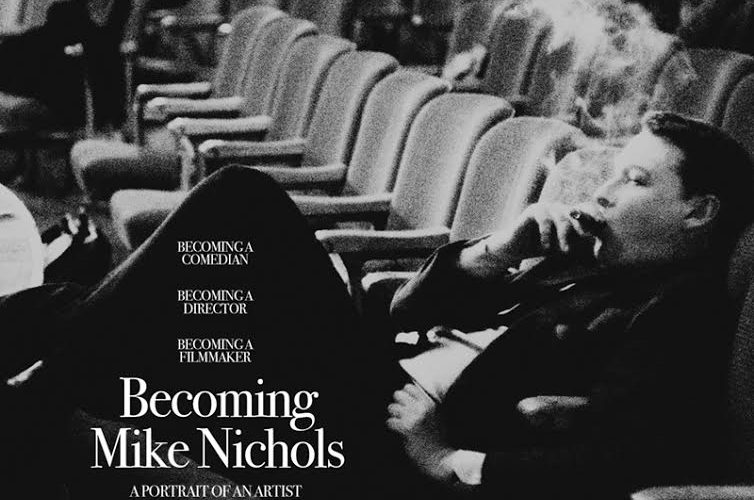Tracing the early career of the prolific filmmaker, from his early collaborations with Elaine May to his first few adventures in Hollywood, Becoming Mike Nichols may very well become a required text in an introduction to narrative filmmaking course. Generous with his knowledge of the craft, text, performers, and the mistakes he made along the way, he opens up to fellow theatre director and longtime friend Jack O’Brien in a series of two interviews recorded in 2014 at the John Golden Theater — the venue that hosted An Evening with Mike Nichols and Elaine May in 1960. O’Brien interviews Nichols, once with an audience and once without one, allowing some stories to be told twice — sometimes performing for the entire room, others simply opening up to an old friend in a more casual setting.
Director Douglas McGrath permits scenes from The Graduate and Who’s Afraid of Virginia Woolf to play out along with archival recordings of classic gags from Nichols and May. While the device initially seems rather dry, the approach grows insightful as filmmaking choices are explored in-depth, from the closing moments of The Graduate to the complex monologues and domestic war games of Virginia Woolf.

Opening up about his early collaborations with May in Chicago before moving to New York, we learn how he developed a rhythm and shorthand working in improvisation, later applying and adapting lessons learned. The energy of these early collaborations proves toxic as Nichols takes the lead, alienating May and threatening the creative partnership.
Nichols generously shares much of his process, from workshopping material on stage (often a collaborative process with an original cast) to directing for the screen. Each involves their own psychological tricks, tactics, and arguments, from managing larger-than-life personalities and, of course, the dynamics of established intimate relationships. The passage exploring Virginia Woolf is particularly insightful, as Nichols makes his feature-film debut fighting fights when required, including shooting the film in black-and-white.

Focusing directly on four early creative chapters, McGrath restricts the film to his early life, including an early collaboration directing Robert Redford in Neil Simon’s Barefoot in the Park — first in summer stock and eventually on Broadway. The conversation, apart from his working and personal relationship with May, is largely focused upon the craft of directing, an art that is largely difficult to articulate on screen. Like last year’s Hitchcock/Truffaut and De Palma, the focus is largely on the tools of the craft. Here, Nichols openly admits Virginia Woolf provided on-the-job training for the screen directing: while he was able to articulate where to put the camera, he had no knowledge of specific lenses to create his desired effect.
Brief and engaging, Becoming Mike Nichols isn’t quite the self-guided study of Noah Baumbach and Jake Paltrow’s De Palma. By focusing on his freshest, earliest, and perhaps most exciting work, we learn an awful lot about what is to come, making this an engaging study for both the unfamiliar and devoted students of Nichols’ work.
Becoming Mike Nichols airs on HBO starting Monday, February 22.

